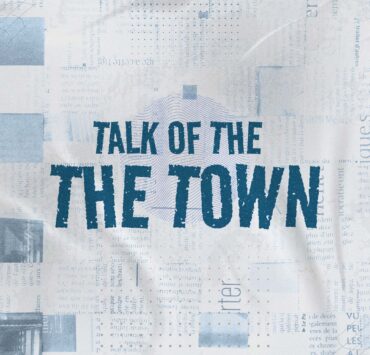Sinking the floating ‘shabu’ trade

It’s a bountiful catch that Filipino fisherfolk can certainly do without, and a fishy development that bodes ill for the country’s anti-drug operations. In the last two weeks, fishermen in the waters off Pangasinan and Ilocos have retrieved scores of floating “shabu” whose aggregate value has reached P4.3 billion, according to the Philippine Coast Guard (PCG). This does not include more contraband likely still drifting northward, the PCG said. The Philippine National Police meanwhile put at P9 billion the floating sacks of shabu turned over by fisherfolk to authorities.
With its 36,289-kilometer coastline—the fifth longest in the world—the Philippines has become a convenient dumping ground for drug couriers whose local cohorts would retrieve the contraband, except those fishermen in the area got to them first, the Philippine Drug Enforcement Agency (PDEA) said.
Using the country’s waterways for drug smuggling is nothing new, though the frequency and volume of the latest finds seem unprecedented—over 1.2 tons from June 2 to 9. At least 56 local fishermen surrendered a total of 1,038 kilos of suspected shabu worth more than P7 billion in 40 turnover incidents to authorities as of June 9, marking one of the country’s largest maritime seizures of illegal drugs in recent years. President Marcos has ordered that the drugs be immediately destroyed.
Chinese Drug Triad
In 2024, similar off-shore recoveries of packages, later confirmed to be that of illegal drugs, were reported across the country: 20 bricks of suspected cocaine off Eastern Samar valued at P111.85 million; another brick of cocaine along the shores of Burgos, Surigao del Norte worth P5.7 million, and more packs of shabu fished out of the coastal waters of Lian, Batangas, San Juan Bay in Ilocos Sur, and Agno and Bolinao towns in Pangasinan.
If anything, the floating shabu finds signal a more ingenious smuggling method by drug traffickers, whose meth labs used to be found onboard ships disguised as fishing vessels. The drugs were picked up by local contacts in Cagayan, Pangasinan, and Subic while the vessel was in the open seas. While Police Maj. Paul Vinsent Tadeo, Santa Cruz police chief, said they were still investigating the source of the illicit drugs, PDEA on Monday said the Chinese Drug Triad is behind the floating shabu in the waters of Pangasinan and Ilocos Sur, specifically the large international crime syndicate named Sam Gor.
“Sam Gor is a five-drug triad alliance namely, the 14K, Bamboo Union, Big Circle Gang, Sun Yeen On, and Wo Shing Wo, whose leaders are based in Hong Kong and Taiwan. Their members simply called it ‘The Company,’” PDEA director general Isagani Nerez said.
Asia’s El Chapo
The syndicate is named after its suspected founder Chinese Canadian Tse Chi Lop, seen as Asia’s El Chapo, who was arrested four years ago in the Netherlands. He was eventually extradited to Australia in December 2022 to face drug trafficking charges.
Sam Gor allegedly operates in various countries across Asia-Pacific and controls up to 70 percent of the drug market in the region. The syndicate is raking annual profits surpassing the $17-billion mark, the PDEA said.
While a dark chapter in the country’s anti-drug operations, the successive recovery of large quantities of illegal drugs has also prompted the PCG, PDEA, and the police to intensify patrols along the country’s maritime areas. It “[highlights] the strong inter-agency collaboration and cooperation among law enforcement agencies in protecting the country’s vast and porous coastlines from any threats of drug smuggling and trafficking,” Nerez said.
The strong partnership between local communities, other maritime stakeholders, and law enforcement agencies is best seen in the fisherfolks’ commendable surrender of the drugs posthaste. “The sheer volume of surrendered illegal drugs is a resounding testament to the vigilance and integrity of our coastal communities,” Nerez said.
True heroes
“Our fishermen, despite the risks, chose the country over fear. They are the true heroes in this relentless fight against drug smuggling.”
Such actions have not gone unnoticed, with the local government giving P100,000 to the Bataan fisherfolk who had retrieved the floating shabu in Zambales. The PNP meanwhile provided them sacks of rice. Incentives will also be given to the fisherfolk in Pangasinan and Ilocos, PNP spokesperson Brig. Gen. Jean Fajardo said. As it should be.
Local governments, the PCG, and PDEA should also look into how fishing communities can benefit from the illegal drug haul by sourcing funds from the national government for the health and livelihood needs of fisherfolk, both as reward and incentive for their role in anti-drug operations.
In the meantime, we should all hold on to the PDEA’s promise to pursue the key perpetrators behind this transnational crime and bring them to justice. It is our duty as well to remain vigilant on all fronts, including our seas and vulnerable coastal areas.

















How to help the world’s poor most effectively